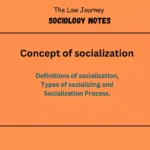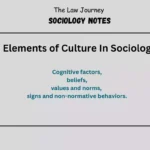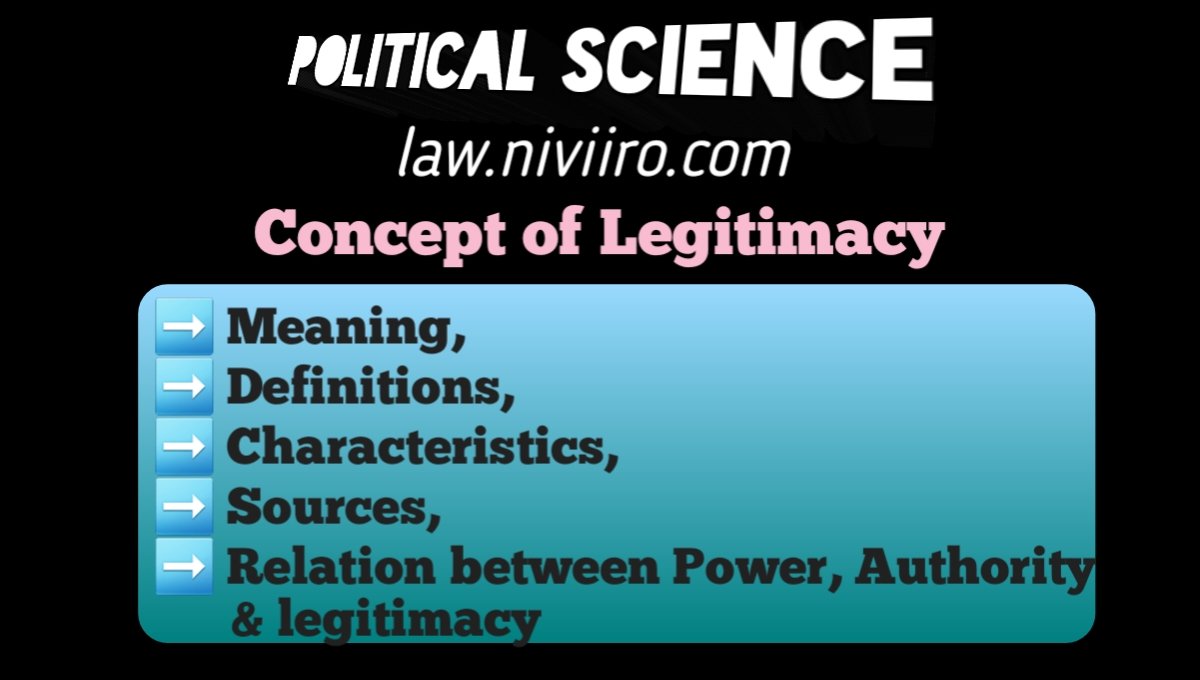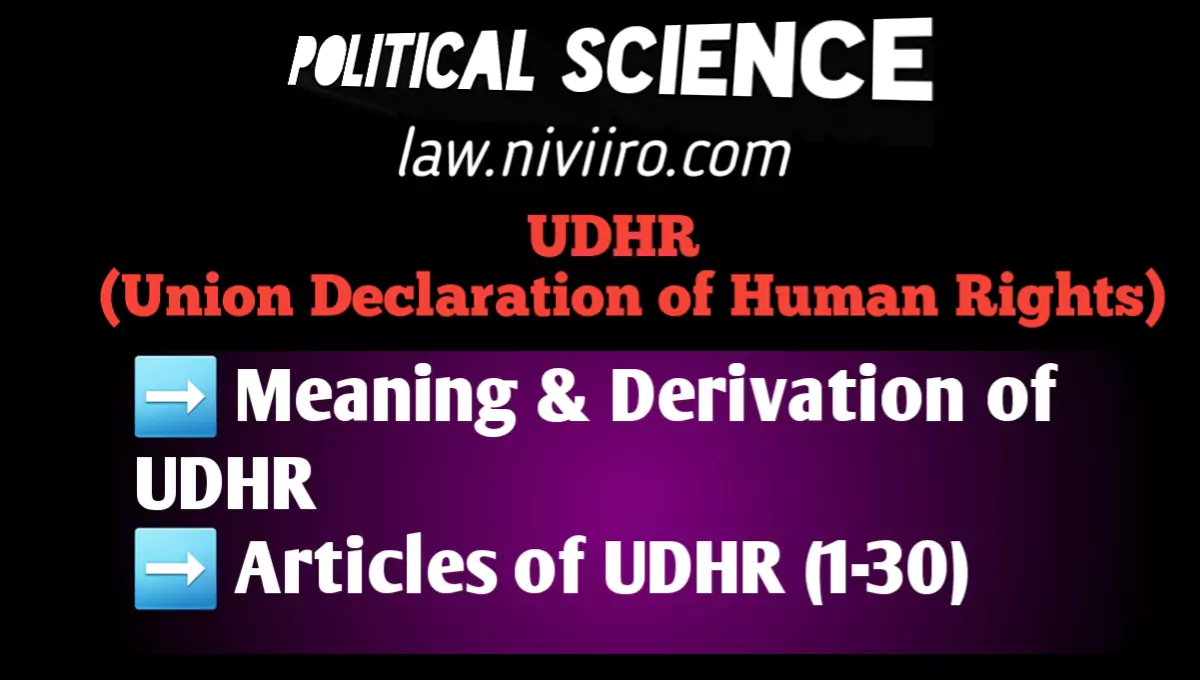Although the roots of this notion can be found in Plato’s writings, who enunciated the idea of justice in his Republic, the concept of legitimacy has gained prominence in modern political thought. However, only modern political theorists have put out its thorough explication. Only genuine power, influence, and authority can be effective.
When there is no legitimacy, power and influence are attacked and countered: authority is completely ignored. It is their legitimacy that allows them to be effective and functioning. Individuals, organisations, and institutions cannot have power and influence without legitimacy, even if the three are mutually reinforcing or even antagonistic. Legitimacy separates coercion, force, and authority from influence, persuasion, and leadership.Legitimacy is a pre-requisite of power.
Meaning and definitions of Legitimacy
The term ‘legitimacy’ comes from the Latin word ‘legitimus’. During the Middle Ages, it was known as ‘legitimitas,’ which meant lawful in English. Cicero used the term legitimum’ to refer to the power conferred by law. Later, the term “legitimacy” was used to traditional procedures, constitutional principles, and adherence to traditions. The word ‘consent’ was then added to its meaning. Consent was thought to be the core of lawful rule.
Max Weber was the first to define legitimacy as a universal notion in the contemporary era. According to him, legitimacy is built on “believe” and garners people’s obedience. Power is only effective if it is legitimate. Power has the right to use coercion, but that is not its primary function.Power should be based on legitimacy; otherwise it would invite trouble and may prove ineffective.
Some of the important definitions of legitimacy are:
- S.M. Lipset – Legitimacy involves the capacity of the system to engender and maintain the belief that the existing political institutions are the most appropriate ones for the society.”
- Kuhn Alfred – “Legitimacy has been constructed as the acceptance of major bargain between the rulers and the ruled. At its most elemented level this is an agreement by the people to pay taxes and obey the government in turn for being allowed to stay alive and out of prison.”
- Jean Blondel – “Legitimacy can be defined as the extent to which the population accepts naturally, without questioning, the organisation to which it belongs…. The broader the area of agreement or acceptance, the more legitimate the organisation.”
Characteristics of Legitimacy
Some characteristics of Legitimacy are given below:
1. To promote public belief in the political system, which is necessary for its survival.
2 Regarding the efficacy of the political system. According to S.M. Lipset, “The stability of any given democracy depends not only on economic development but also upon the effectiveness and the legitimacy of its political system.”
3, A method of translating power into authority. According to Dahl, “Legitimate power influence is generally called authority.”
4. The basis of political system of legitimacy is public faith and values.
5. The political system exists to benefit the people. The people’s faith is the foundation of legitimacy.
Sources of Legitimacy
1. According to Max Webber, Sources of Legitimacy
There are three sources of legitimacy:
1. Tradition– Legitimacy may be founded on a long-held belief in the legitimacy of immemorial traditions, as well as the obligation to obey leaders who exercise authority in accordance with the traditions.
2. Exceptional Personal Qualities – A second basis for legitimacy is “devotion to the distinctive and exceptional holiness, or exemplary character of an individual person.”
3. Legality – Legitimacy may be based on the notion that power is used in a legal manner. What is done legally is considered legal. Graces A. Jones, in regard to the British political system, has stated the following sources of legitimacy: (i) Continuity with the political and social institutions. (i) Tradition of non-violence. (ii) Religious beliefs. (iv) Belief in values. (v) Electoral process, liberty and unanimity. (vi) Co-ordinated and integrated society and continuity of its traditions. (vii) Adaptive political culture.
2. According to Friedrich the sources of legitimacy are:
(i) religious, (ii) philosophical and juristic, (ii) traditional. iv) procedural and (v) empirical.
3. According to Dahl the sources of legitimacy
Dahl has also indicated various sources of winning legitimacy o earning compliance.
(i) To encourage compliance-
(a) by increasing rewards for compliance:
(b) by decreasing disadvantages of compliance.
(ii) To discourage non-compliance
(a) by decreasing rewards from other alterntives,
(b) by increasing disadvantages of other alternatives.
He believes that internal sources of rewards and deprivation are always preferable to external sources. Internalization eventually replaces the requirement for external sources. The cost of compliance decreases when the political system is universally viewed as legitimate and its programmes are considered as morally binding. When legitimacy and authority are low, the government must rely more on money, police, privileges, weaponry, position, and other political resources. Obviously, democracy necessitates a higher level of legitimacy and authority than other systems.
According to the above explanation, legitimacy is more than an abstract or moral emotion. It has to do with the entire political system. It is a notion that encourages people to think that it is ethically correct and proper for government authorities or leaders to create binding rules. Legitimacy allows a ruler to govern with few political resources. It is the very heart of democracy.
Relation between Power, Authority, and, Legitimacy
1. Authority is always legitimate. The term authority refers to legitimate power. Power can be either legitimate or illegitimate. Any power that is legally sanctioned is authority, if not illegal power.
2. Authority is founded on a person’s ability to persuade others to believe him or her and begin complying. As a result, utilise coercion to achieve conformity. When the need for conformity or coercion arises, power, rather than authority, comes into play.
3. Authority is not anticipated through persuade, but by willingness. Those who embrace authority believe that obeying it is in their best interests.
4.Power is based on compulsion or sanction; without compulsion, the power wielder’s power cannot be accepted. Authority is obeyed not out of fear, but out of reasonableness. The main aspect is willing obedience by those who are supposed to accept it. Eric Rowe once said that, “Power like authority is a means of favourably affecting the behaviour of another but by might, not right.”
5. Power is accepted in order to prevent the fear of penalty loss.
6. Power is built on force and does not represent reason. Authority is the embodiment of logic.
7. Power has no moral values; authority has legal values; and legitimacy believes in moral values.
8. Reasonableness is the most essential factor of individuals willingly obeying authority. There is no reason to submit to authority. The purpose of authority is to benefit the people.
9. Power is illegimate with authority but without legitimacy both power and authority are immoral.
10. Power is a physical factor, authority is a legal element, and legitimacy is a moral aspect.
11. Authority is the link between power and legitimacy.
12. In relation to authority, power and legitimacy are opposite to each other.
13. Although authority can be given, power and authority cannot.
14. Power provides a physical foundation for the political system, authority provides a legal foundation, and legitimacy provides a moral foundation. Though their roles in a political system may differ, they work together to make a political system functional. They are all mutually beneficial.
Related Post
Definition of Legitimacy ?
S.M. Lipset – Legitimacy involves the capacity of the system to engender and maintain the belief that the existing political institutions are the most appropriate ones for the society.”
Kuhn Alfred – “Legitimacy has been constructed as the acceptance of major bargain between the rulers and the ruled. At its most elemented level this is an agreement by the people to pay taxes and obey the government in turn for being allowed to stay alive and out of prison.”
Characteristics of Legitimacy ?
1. To promote public belief in the political system, which is necessary for its survival.
2 Regarding the efficacy of the political system. According to S.M. Lipset, “The stability of any given democracy depends not only on eco…………
3, A method of translating power into authority. According to Dahl, “Legitimate power influence is generally called authority.”………
Explain the Sources of Legitimacy ?
1. According to Max Webber. There are three sources of legitimacy:
1. Tradition– Legitimacy may be founded on a long-held belief in the legitimacy of immemorial traditions, as well as the obligation to obey leaders who exercise authority in accordance with the traditions.
2. Exceptional Personal Qualities – A second basis for legitimacy is “devotion to the distinctive and exceptional holiness, or exemplary character of an individual person.”…….
References
- Prof. H.C. Verma, Modern Political Theory
- M.P. Jain, Political Theory liberal and Marxiam
- Foundations of Political Science, Dr. Sunita Gangwal
- Prof. S.L. Verma, Modern Political Theory
- J.C. Johari, Political Science
- R.C. Agarwal, Political Theory
- V.D. Mahajan, Political Theory




















